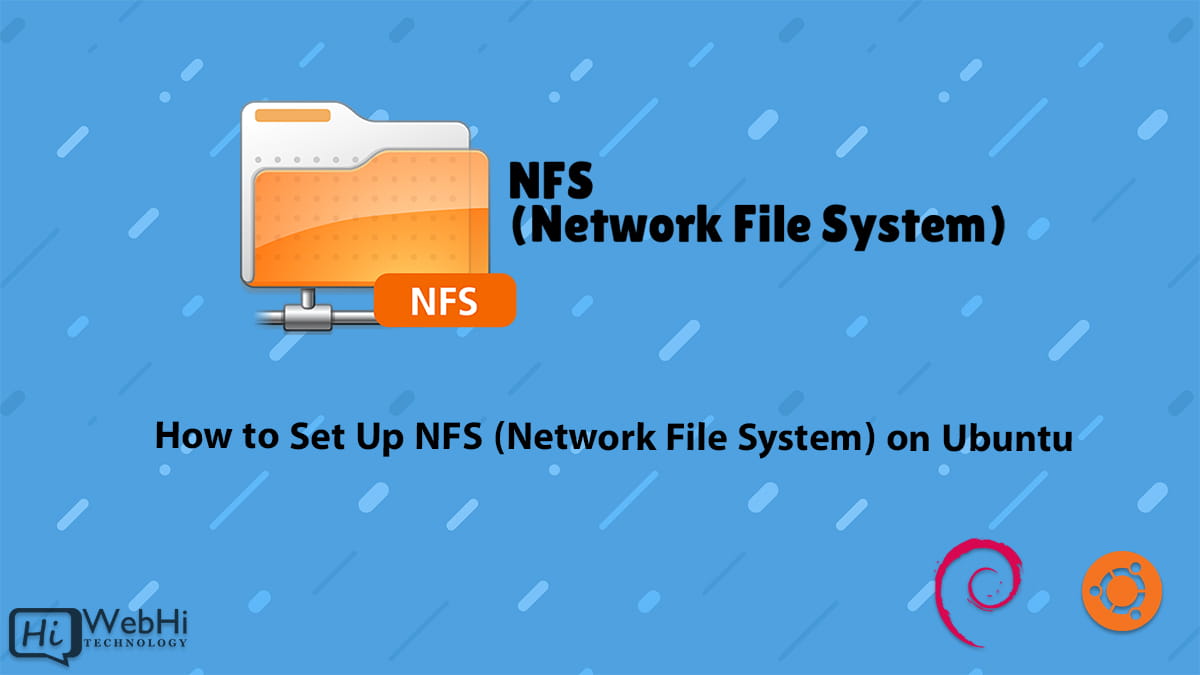
Introduction
Setting up NFS (Network File System) on Ubuntu allows you to share files and directories between multiple systems over a network seamlessly. This guide provides detailed instructions to help you configure NFS on Ubuntu, enhancing your file-sharing capabilities and improving network efficiency.
Setting Up NFS on Ubuntu
Setting up NFS (Network File System) on Ubuntu can significantly enhance your network’s ability to share files efficiently. In this section, we will explore the steps involved in configuring NFS on your Ubuntu system, ensuring a smooth and successful setup.
Understanding NFS
Network File System (NFS) is a protocol that allows a user on a client computer to access files over a network as if they were on the user’s local storage. NFS enables the sharing of directories and files with others over a network. By using NFS, users and programs can access files on remote systems as easily as if they were on their local hard drive.
Benefits of Using NFS
NFS offers several benefits, making it a preferred choice for network file sharing:
- Centralized Management: Centralized data management allows for easier backups and data integrity.
- Network Transparency: Users can access remote files with ease, as if they were local.
- Security: NFS supports several security mechanisms to protect data during transmission.
- Performance: Optimized for performance, NFS supports large data transfers efficiently.
Prerequisites
Before we begin the setup, ensure you have the following:
- Two Ubuntu systems (one will act as the server and the other as the client).
- Root or sudo access on both systems.
- Basic understanding of command-line operations.
Installing NFS Server
To set up NFS, you need to install the NFS server package on the system that will act as the server.
Step 1: Update Your System
First, update your package list to ensure you have the latest software.
$ sudo apt updateStep 2: Install NFS Kernel Server
Next, install the NFS kernel server package.
$ sudo apt install nfs-kernel-serverConfiguring NFS Server
After installing the NFS server, the next step is to configure it to share directories.
Step 3: Create a Directory to Share
Create a directory that you want to share with the client systems.
$ sudo mkdir -p /mnt/nfs_shareStep 4: Assign Permissions
Set the appropriate permissions for the directory. This example grants read/write access to all users.
$ sudo chown nobody:nogroup /mnt/nfs_share
$ sudo chmod 777 /mnt/nfs_shareStep 5: Configure Exports File
Edit the /etc/exports file to define the directories to be shared and the clients allowed to access them.
$ sudo nano /etc/exportsAdd the following line to share the directory with a specific client (replace client_ip with the actual IP address of the client):
/mnt/nfs_share client_ip(rw,sync,no_subtree_check)Step 6: Export the Shared Directory
Export the shared directory using the following command:
$ sudo exportfs -aStep 7: Start and Enable NFS Server
Start and enable the NFS server to ensure it runs at boot.
$ sudo systemctl start nfs-kernel-server
$ sudo systemctl enable nfs-kernel-serverSetting Up NFS Client
Now that the server is configured, let’s set up the client system to access the shared directory.
Step 8: Install NFS Common
Install the NFS common package on the client system.
$ sudo apt install nfs-commonStep 9: Create a Mount Point
Create a directory where you will mount the NFS shared directory.
$ sudo mkdir -p /mnt/nfs_clientshareStep 10: Mount the NFS Share
Mount the NFS share from the server. Replace server_ip with the actual IP address of the server.
$ sudo mount server_ip:/mnt/nfs_share /mnt/nfs_clientshareStep 11: Verify the Mount
Verify that the NFS share is mounted successfully.
$ df -hYou should see the NFS share listed in the output.
Persisting the Mount
To ensure that the NFS share mounts automatically at boot, edit the /etc/fstab file on the client system.
$ sudo nano /etc/fstabAdd the following line to the file:
server_ip:/mnt/nfs_share /mnt/nfs_clientshare nfs defaults 0 0Security Considerations
Securing NFS shares is crucial to prevent unauthorized access. Here are some security measures you can implement:
Using Firewalls
Configure firewalls to allow NFS traffic only from trusted IP addresses.
Using NFSv4
NFSv4 includes several security enhancements over previous versions. Consider using NFSv4 for better security.
Restricting Client Access
Restrict client access to specific IP addresses or subnets in the /etc/exports file.
Using Kerberos Authentication
Implement Kerberos authentication to enhance security further. This adds an additional layer of authentication to your NFS setup.
Troubleshooting Common Issues
While setting up NFS, you might encounter some common issues. Here are a few troubleshooting tips:
Checking Service Status
Ensure that the NFS server service is running.
$ sudo systemctl status nfs-kernel-serverChecking Firewall Settings
Verify that the firewall allows NFS traffic.
$ sudo ufw statusVerifying Mounts
Check if the NFS share is mounted correctly on the client.
$ mount | grep nfsConclusion
Setting up NFS on Ubuntu is a straightforward process that involves installing the necessary packages, configuring the server and client, and securing your setup. By following the steps outlined in this guide, you can efficiently share files across your network, enhancing your data management and accessibility.
FAQs
What is NFS used for?
NFS is used for sharing files and directories over a network, allowing users to access remote data as if it were on their local system.
How do I install NFS on Ubuntu?
Install NFS on Ubuntu by running sudo apt install nfs-kernel-server on the server and sudo apt install nfs-common on the client.
How do I secure my NFS setup?
Secure your NFS setup by using firewalls, restricting client access, using NFSv4, and implementing Kerberos authentication.
What are the benefits of using NFS?
NFS offers centralized data management, network transparency, security, and optimized performance for large data transfers.
How do I mount an NFS share?
Mount an NFS share by running sudo mount server_ip:/path/to/share /mount/point on the client system.
What should I do if my NFS share is not mounting?
If your NFS share is not mounting, check the service status, firewall settings, and verify that the share is correctly defined in the /etc/exports file.
